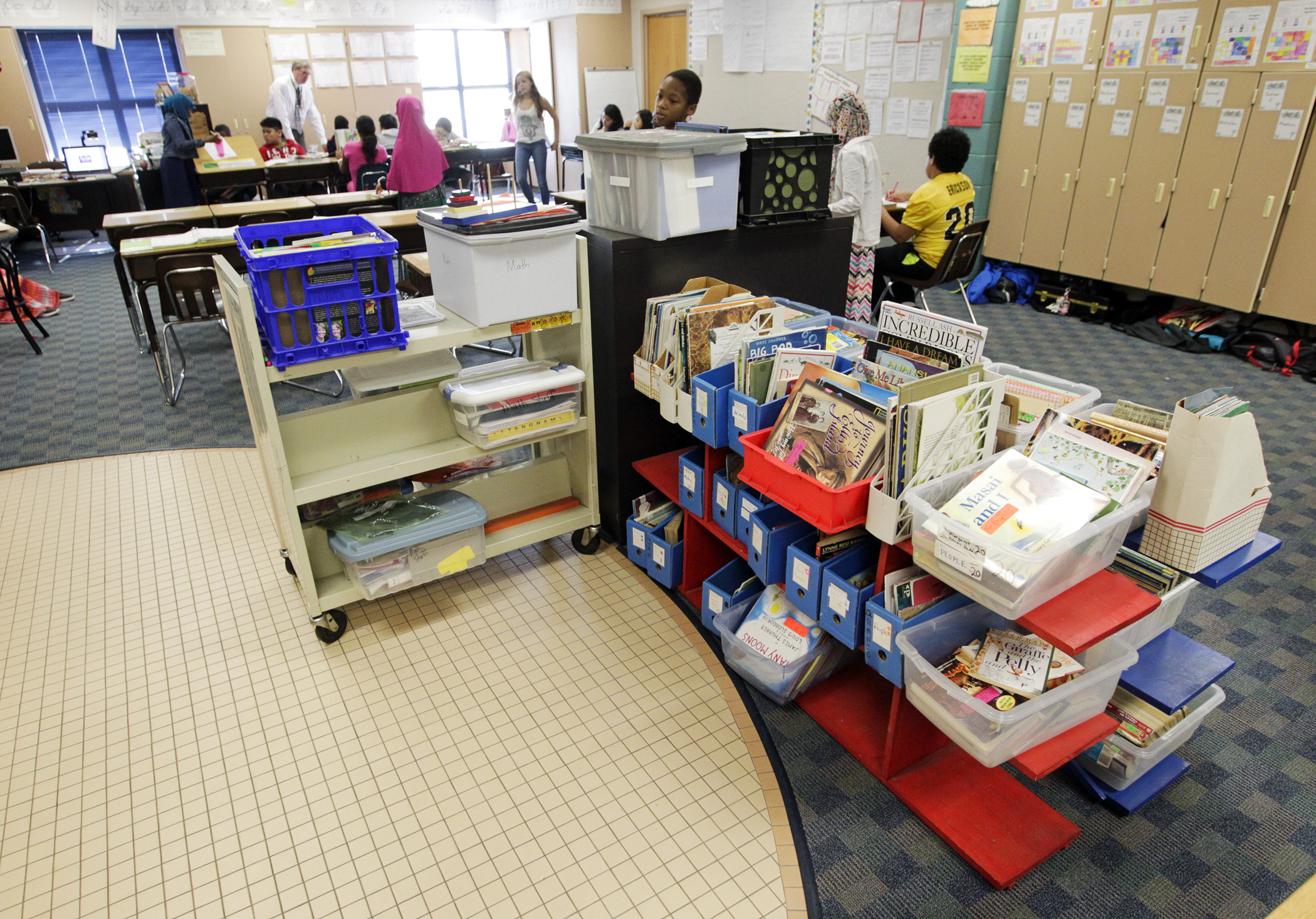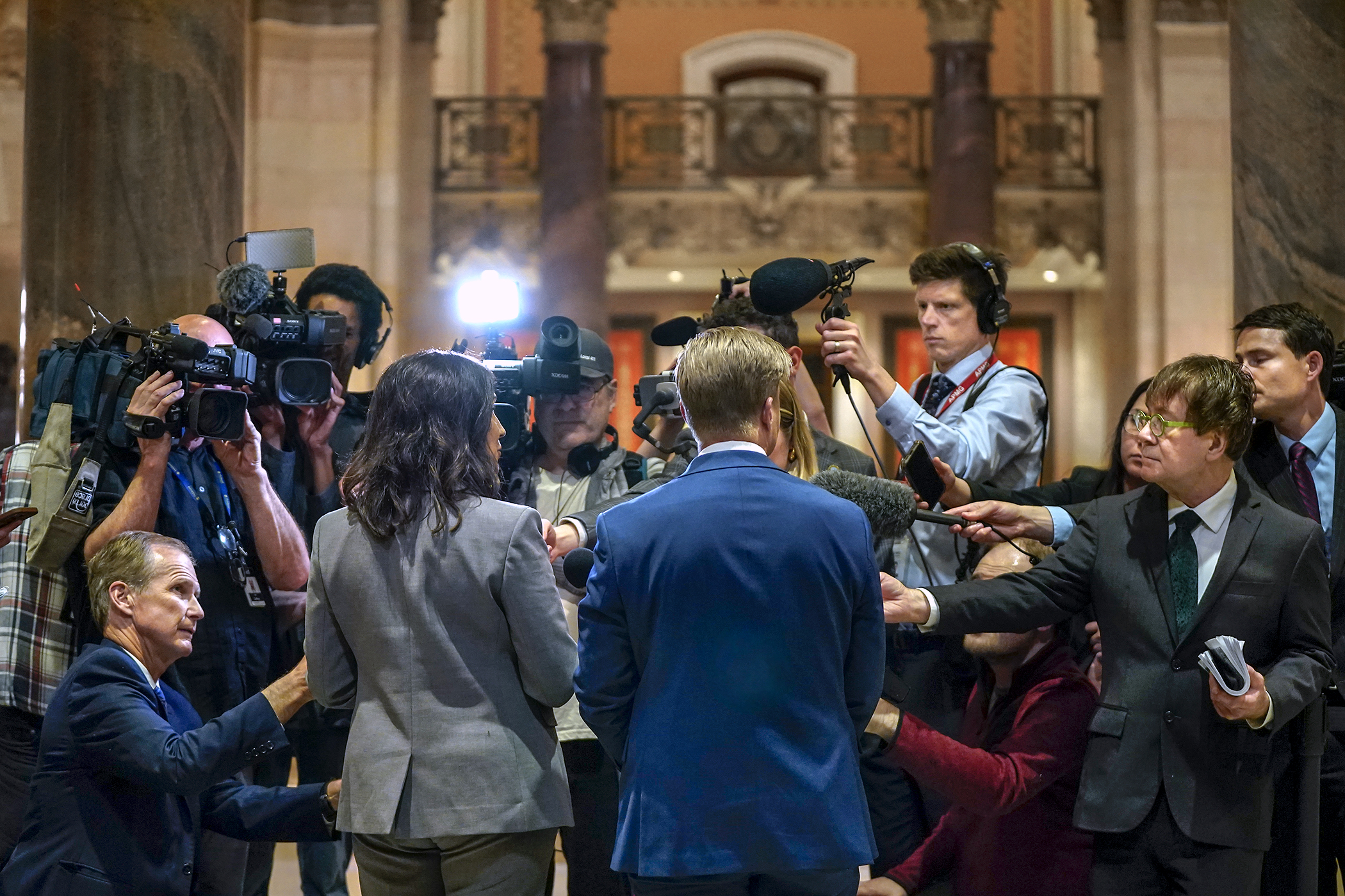House lawmakers consider proposal to remake literacy curriculum across the state

Reading proficiency rates are slipping among Minnesota’s students, with nearly half of all students not now reading at grade level. It’s an issue that has been raised many times in the education committees this session.
On Tuesday, the House Education Policy Committee finally heard a proposal to tackle this intensifying predicament.
“HF629, the READ Act, is an effort to take what we know about research, human development, cognitive science, and how people learn to read, and apply it to meaningful public policy,” said Rep. Heather Edelson (DFL-Edina), the bill sponsor.
“This goal is to support our districts and to improve literacy rates across the state of Minnesota, to help every child have the opportunity to read well.”
The committee intended to send the bill, as amended, to the House Education Finance Committee, but it was ultimately laid over for future discussion.
At the core of the bill is an ambitious goal – have all students reading at or above grade level by the end of grade 3 in 2025. This would be done primarily by remaking the literacy curriculum to conform with evidence-based reading instruction termed the “science of reading.”
To that end, Edelson wants to appropriate substantial sums to local districts and charter schools. This would amount to $40 million in fiscal year 2024 for schools to purchase new books, instructional materials, and intervention materials; and $30 million annually in the upcoming biennium to train classroom teachers on the science of reading method.
Edelson admits the bill is a work in progress: the definition of a “literacy specialist” and language around progress monitoring will continue to be shaped before the next committee stop.
Over a dozen teachers, administrators, students, and community advocates said the state’s current literacy curriculum and teaching methods need a foundational overhaul.
“As we know, our educational systems are failing our students when it comes to reading,” said Maria Roberts, an elementary school principal.
However, there were differences of opinion regarding the bill itself. Some felt the proposal does not go far enough in addressing the persistent achievement gap between Black and white students; feared it would not adequately prepare teachers to be culturally competent for diverse student population; or warned against relying on the science of reading as the sole pedagogical method for teaching kids how to read.
Related Articles
Search Session Daily
Advanced Search OptionsPriority Dailies
Legislature — with budget incomplete — gavels out, prepares for special session
By Rob Hubbard Some years, state legislative sessions surge to a climax on their final day, a flurry of activity providing a sustained adrenaline rush, culminating in smiles of satisfaction as...
Some years, state legislative sessions surge to a climax on their final day, a flurry of activity providing a sustained adrenaline rush, culminating in smiles of satisfaction as...
Walz, lawmakers strike budget deal in session's final days
By Lisa Kaczke With five days to go in the 2025 session, three of four legislative leaders announced a budget agreement Thursday that would sunset unemployment insurance for hourly school empl...
With five days to go in the 2025 session, three of four legislative leaders announced a budget agreement Thursday that would sunset unemployment insurance for hourly school empl...